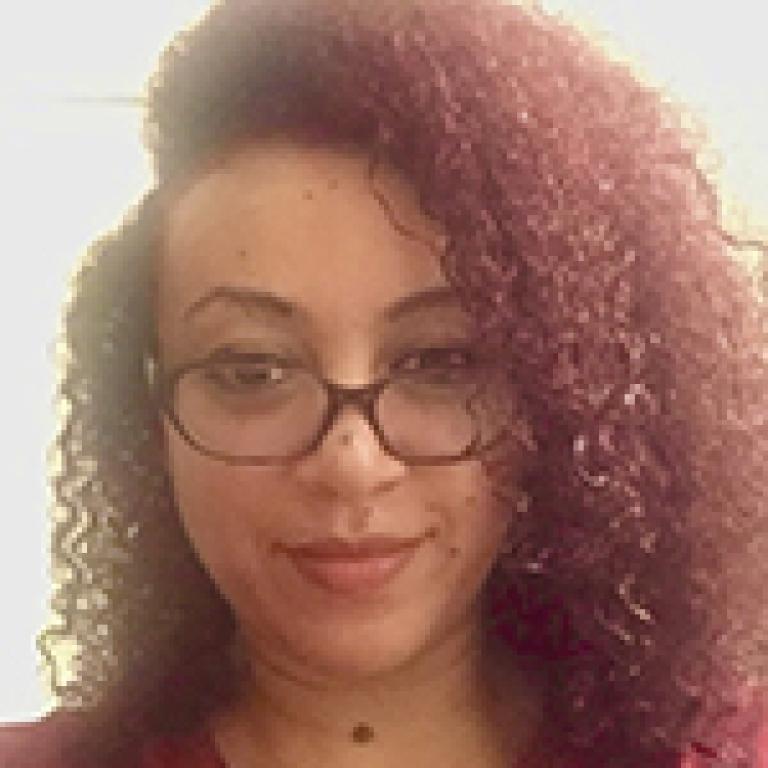News
Q & A with Feven Seifu, teaching assistant professor, counselor ed

In fall 2021, Feven Seifu started as an assistant teaching professor in the counselor education program in the Department of Educational Psychology. We asked Dr. Seifu what brought her into the field of counseling and the University of Minnesota.
How did you become interested in your area of expertise?
I am not one of those few people who happened to know what they wanted to do with their lives since they were five. Like many people, I was introduced to my calling relatively later in life. Even though growing up my quiet and introspective disposition had earned me names such as, “the listener or the empath,” I never dreamed of furthering my education in psychology, let alone becoming an academician.
I cannot pinpoint the exact moment when my dream of becoming a professor was conceived, but I think it all began with me having more questions than answers in life. What’s interesting about the journey of seeking knowledge is that the more we search for answers, the more we discover questions. In fact, the original questions that ignited my curiosity were never met with resolution, but instead they became more sophisticated, refined, multiplied, and nuanced.
I particularly enjoy wrestling with existential related questions. Topics that revolve around meaning in life (or of life), death, morality, and free will (or the lack thereof) fascinate me endlessly. In this process, I realized that I not only have a deep passion to continue learning, but I also derive an even greater pleasure from sharing what I learn with others.
In addition, I also do not know if it’s ever possible for me to untangle my passion from my pain. The two are so exceedingly intertwined that losing one will inevitably cause me to lose the other one. I’ve been thinking about passion these days and remembering those early days when I used to envy those people who claimed to have found their true passions in life. Like most people, I wanted that life and now I can say that I am at least partly (it’s always evolving, right?) aware of the things that I am deeply passionate about, but the path to discovering that has never been linear nor was it pain free. Now, am I suggesting that I am grateful for all the pain because they’ve introduced me to my calling in life (or however you call it), well truth be told, I wish there had been another route, but I am also convinced that I may not be as committed as I am now had they not be born out of a pain that I have tasted and experienced.
What is most exciting about your work?
One aspect of my work that I truly enjoy is that I never stop learning and exploring. It is true that sometimes we teach the same course repeatedly, but because we are engaging with new students each semester, there is always an opportunity to grow and gain new perspectives and insights. But nothing gives me more joy than striking my students’ curiosity while also seeing them supported and challenged. I view the classroom not just as a place in which learners get equipped with knowledge and skills, but also a space where good questions emerge.
Any specific accomplishments that stand out to you and you would like to share?
There had been moments when I wanted to give up on my PhD. I moved to the U.S. as an international student and having to meet the heavy demands of the doctoral program in a foreign land had been challenging, and at times, very trying. I was caught in between two of my virtues— honoring my dream and taking good care of mental and physical health. There had been times when I felt like I was sacrificing my well-being on the altar of my dream (I wouldn’t consider this as an accomplishment). Finally, however, through sheer hard work and incredible support from family and friends, and who knows what measure of luck, I came through. On my graduation day, my academic advisor and dissertation chair hugged me and said, “Somehow you survived not only the PhD but the pandemic as well.” I smiled.
What advice would you give students?
I am of the view that we all should be humble enough to examine/rethink what we know and curious enough to learn more.
How do you briefly explain your area of expertise to someone outside the college?
I am an educator and a lifelong learner. I teach clinical mental health students.
Do you have any hobbies or special interests outside of work?
My Latinx colleague introduced me to Zumba some years ago and I have remained loyal ever since. I like to say that I enjoy cooking, but sometimes I wonder if what I enjoy the most is eating good food rather than the process of making it. But I cook.